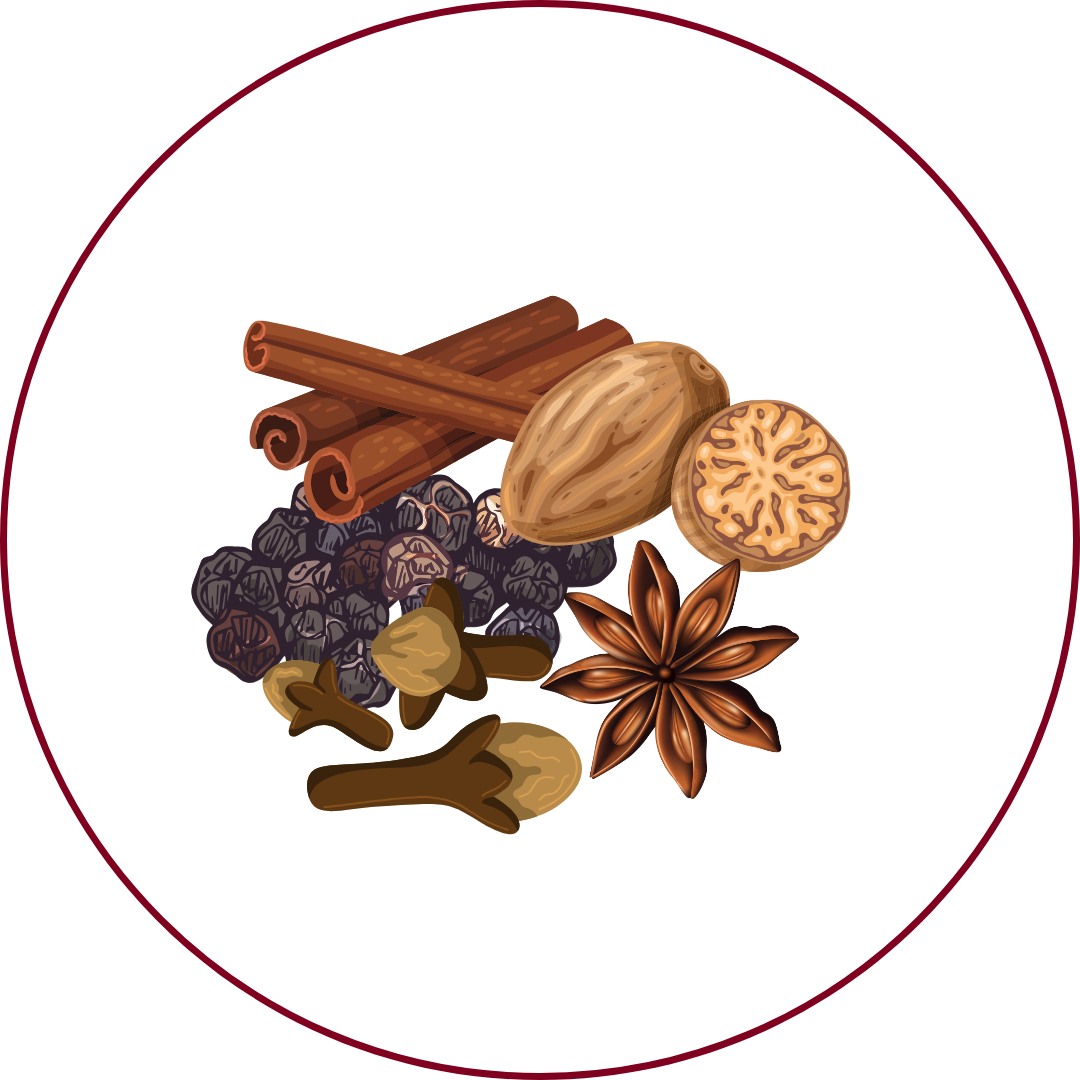Grape Variety
Saperavi
"sah-peh-RAH-vee"
Wine Styles
 Sparkling
Sparkling Light White
Light White Full White
Full White Aromatic
Aromatic Rosé
Rosé Light Red
Light Red Medium Red
Medium Red Full Red
Full Red Dessert
DessertAbout Saperavi
Origin
Georgia
History
Saperavi is an ancient red grape variety native to Georgia, with a history dating back thousands of years. The name 'Saperavi' translates to 'dye' or 'paint' in Georgian, reflecting its deep, dark color. It is one of the few teinturier grape varieties, meaning it has pigmented flesh and juice, not just skins. Saperavi is the most widely planted red grape in Georgia, accounting for about 10% of all plantings throughout the country. Its resilience and versatility have led to its cultivation in various countries, including Russia, Armenia, Moldova, Ukraine, Australia, and the United States.
Appearance
Small to medium-sized, dark blue to black berries with thick skins, forming compact clusters.
Growing Traits
Saperavi is a hardy and adaptable grape variety, capable of thriving in diverse climates and soils. It is particularly well-suited to the cooler climates of continental eastern Europe, where it produces generous yields at high altitudes without compromising quality. The grape is late-ripening and known for its resistance to cold winters and drought conditions. Its thick skins contribute to disease resistance and the deep color of the wines produced.
Wine Characteristics
Body
4/5
Sweetness
1/5
Tannin
4/5
Acidity
4/5
Alcohol
3/5
Full-bodied with a robust structure, characterized by deep color and high acidity. Typically vinified dry, though semi-sweet and dessert styles are traditional in Georgia. Moderate to high tannin levels, contributing to its firm structure and aging potential. High acidity, providing freshness and balance to its rich profile. Moderate to high alcohol content, generally ranging from 12% to 14.5%, depending on the winemaking style.
Taste Profile

Blackberry

Black cherry

Plum

Spice

Earthy
Saperavi wines are known for their deep, dark color and complex flavor profile. Dominant notes include ripe blackberry, black cherry, and plum, often accompanied by spicy and earthy undertones. The high acidity and moderate to high tannins provide a firm structure, allowing the wines to age well and develop additional complexity over time.
Food Pairing
Saperavi's full body and high acidity make it an excellent match for rich, hearty dishes. It pairs well with grilled meats, game, and stews, as well as aged cheeses. Traditional Georgian cuisine, such as khinkali (dumplings) and kharcho (meat stew), complements the wine's robust character. The wine's acidity also balances well with fatty dishes, making it versatile in food pairings.
Growing Regions

Georgia
KakhetiKartliImereti

Russia
North CaucasusLower Volga

Australia
South Australia

United States
New YorkVirginia
Notable Wines & Producers
Kindzmarauli
Kindzmarauli Marani
Teliani Valley
Mukuzani
Château Mukhrani
Tbilvino
Saperavi Reserve
Pheasant's Tears
Orgo Winery
Saperavi FAQ
Common questions about this grape variety
What is the origin of Saperavi?
+
Georgia
Is Saperavi wine full bodied?
+
Saperavi has a body level of 4 out of 5. Which means that Saperavi is Moderate to Full bodied.
Is Saperavi wine dry or sweet?
+
Saperavi has a dryness level of 1 out of 5. Which means that Saperavi is Dry.
Where is Saperavi wine from?
+
Georgia
Where is Saperavi grown?
+
Saperavi is grown in Georgia (Kakheti, Kartli, Imereti)Russia (North Caucasus, Lower Volga)Australia (South Australia)United States (New York, Virginia).
What is Saperavi like?
+
Saperavi wines are known for their deep, dark color and complex flavor profile. Dominant notes include ripe blackberry, black cherry, and plum, often accompanied by spicy and earthy undertones. The high acidity and moderate to high tannins provide a firm structure, allowing the wines to age well and develop additional complexity over time.
What does Saperavi pair with?
+
Saperavi's full body and high acidity make it an excellent match for rich, hearty dishes. It pairs well with grilled meats, game, and stews, as well as aged cheeses. Traditional Georgian cuisine, such as khinkali (dumplings) and kharcho (meat stew), complements the wine's robust character. The wine's acidity also balances well with fatty dishes, making it versatile in food pairings.
What does Saperavi taste like?
+
Saperavi wines are known for their deep, dark color and complex flavor profile. Dominant notes include ripe blackberry, black cherry, and plum, often accompanied by spicy and earthy undertones. The high acidity and moderate to high tannins provide a firm structure, allowing the wines to age well and develop additional complexity over time.
Take Saperavi Knowledge with You
Access detailed grape profiles, tasting notes, and pairing suggestions on your iPhone.
Download on theApp Store